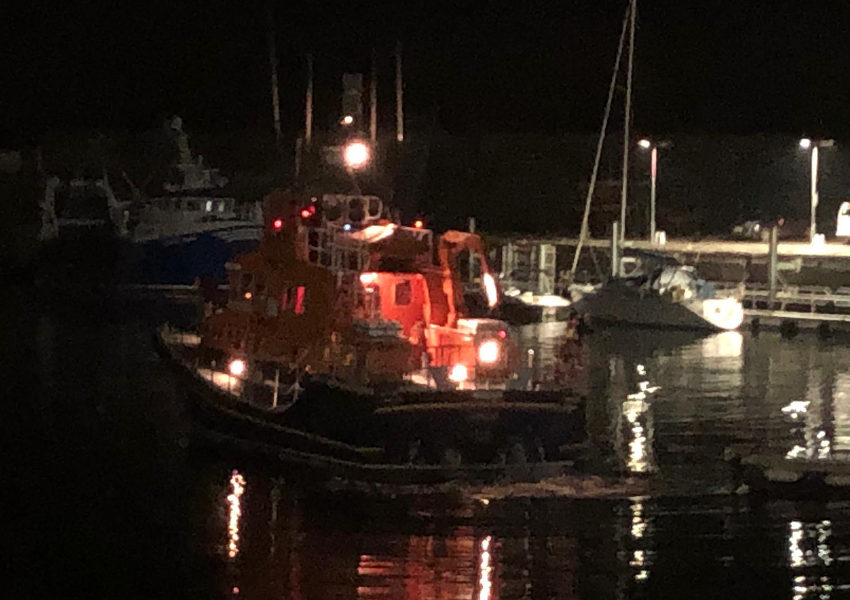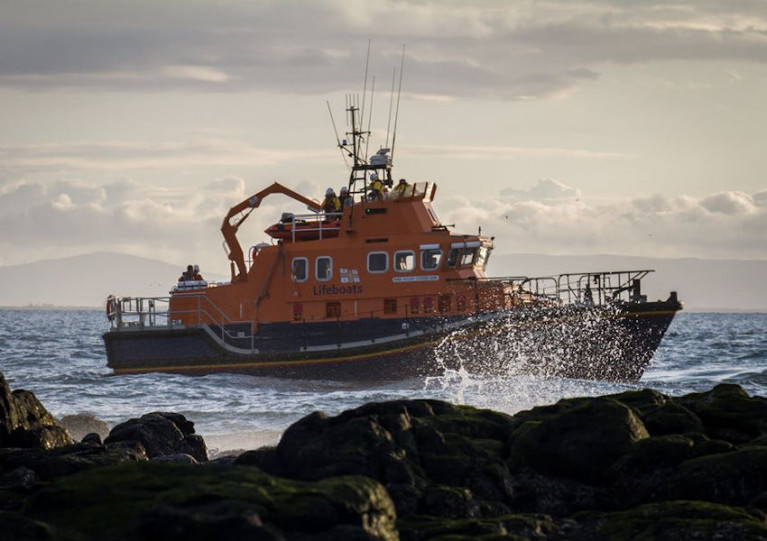Portrush RNLI’s all-weather lifeboat launched late yesterday afternoon (Sunday 16 August) to reports of two missing divers just off Rathlin Island.
The divers were part of an organised party with a diving school, and the dive leader immediately raised the alarm with the coastguard as a precaution.
But as the lifeboat headed to Rathlin, the crew were informed that the divers had been found and recovered by the dive boat.
Portrush RNLI was asked to standby at Ballycastle in case a medical evacuation was required.
However, the dive company had a doctor on board, and the divers were assessed as being fit and handed over to the NI Ambulance Service to be taken to hospital as a precaution.
Lifeboat press officer Judy Nelson said: “This has been one of our busiest seasons as people are choosing to holiday at home and try sea-based activities that they may not have done before.
“We would advise the public to book these activities with an experienced group, who on this occasion observed all safety precautions and raised the alarm immediately, thus preventing an untoward event.”
 Portrush RNLI’s all-weather lifeboat launches to reports of a flare | RNLI/Ben Durrant
Portrush RNLI’s all-weather lifeboat launches to reports of a flare | RNLI/Ben Durrant
Portrush RNLI previously launched the all-weather lifeboat just before 1am on Sunday morning to several reports of a distress flare in the Portstewart Strand area.
After a thorough search of the vicinity with nothing found, the multi-agency response — including the PSNI and HM Coastguard — was stood down and the lifeboat returned to station by 3.30am.
This was also Portrush RNLI crew member Dave Robinson’s first shout as coxswain since passing RNLI assessments two weeks ago.
Deputy launching authority Carl Kennedy said: “As the RNLI will always respond to reports of a distress flare being spotted, we would ask members of the public to take care when launching any kind of light, firework, flare or Chinese lantern during the night as these can be seen as distress flares and reported as an emergency call.
“This can entail, as it did tonight, huge resources being deployed by emergency services to ensure that there was no-one in danger.
“Tonight this was a false alarm with good intent with no one in danger.”
































































